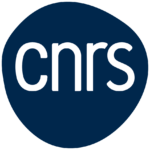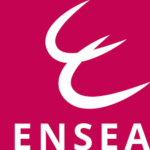Facilities & Labs
Engineers group
The ETIS engineering group brings together all the technical staff attached to the ETIS laboratory, electronics and computer scientists, assistant engineers, design engineers and research engineers.
Missions
- The development of a “centre of competence” within the laboratory, in computer science and electronics.
- The valorisation of the laboratory’s research (for example, by designing, installing and maintaining valorisation platforms).
- The hardware and software platforms support demonstrators or services resulting from research projects carried out by the laboratory’s four research teams. They can also support new research projects.
Our skills
Encoding/formatting of corpora: XML/TEI
Work on image corpora and their indexation
Archiving: patrimonialization and heritage science
Legal work, licences to be affixed, recovery of any rights, etc.
Quality of the corpus: verification of conformity.
Tools: development of tools, implementation of duplicable interfaces.
Les plateformes
ARAV-3D
Plateforme pour l’acquisition 3D, la réalité augmentée et la réalité virtuelle, financée par l’ENSEA (2017-2018).
La plateforme est composée :
- d’équipements d’acquisition de données 3D : scanner à lumière structurée avec un plateau tournant, appareil photographique et logiciels de photogrammétrie, capteurs de type “Kinect”, capteur vidéo-3D ;
- d’équipements pour la réalité augmentée, la réalité virtuelle et l’immersion : casques HTC – Vive, dispositif Microsoft Hololens.
Réalisation
Michel Chapron – équipe ICI
Michel Jordan (équipe MIDI/pôle ingénierie)
Hedi Tabia (équipe MIDI).
Plateforme en humanités numériques
ETIS est membre fondateur de la Structure Fédérative « IDHN » (Institut des Humanités numériques) en compagnie de deux autres laboratoires de l’Université de Cergy‐Pontoise : AGORA et LT2D (Lexiques, Textes, Discours, Dictionnaires) en lien avec le DIMé (Domaine d’intérêt majeur, émergent).
Un des objectifs de l’IDHN est la création d’une plateforme technologique en Humanités numériques : afin de favoriser les confrontations scientifiques et méthodologiques et le partage d’outils et d’approches.
Ce projet a deux volets principaux : des objectifs technologiques et techniques, pour garantir la possibilité de déployer des projets en humanités numériques ; et des objectifs scientifiques, épistémologiques, et doctoraux, sur la base du potentiel technologique précédemment mentionné.
Réalisation
Boris Borzic – équipe MIDI/pôle ingénierie
Claudia Marinica – équipe MIDI
Michel Jordan équipe MIDI/pôle ingénierie
Ongoing projects

Development of a low-cost robotic head, for educational purposes and for the research projects of the Neurocybernetics team, in order to demonstrate, thanks to AI, the possibility of making low-cost robots with low consumption.
Publication of an article for “Living Machines 2018
Team members
Arnaud Blanchard
Djamel Mebarki
Zinedine Galouz
Implementation of dynamic neural field simulation and image processing filters.
Team members
Lionel Faurlini
Arnaud Blanchard
Implementation of an Elasticsearch interface on the RETIN content indexing and search engine.
Team members
Boris Borzic
Elmahdi Sadouni
Michel Jordan
David Picard – équipe MIDI
Hedi Tabia – équipe MIDI

- #IDEO2017, analysis of political election campaign tweets :
The Idéo2017 project, funded by the UCP Foundation, involves researchers from the AGORA laboratory (EA 7392) at the University of Cergy-Pontoise and the ETIS laboratory. It is a platform for the analysis of political tweets during political campaigns. The analysis of these textual data offers rich and varied information on their discourse. This tool is based on the corpus constitution methodology developed in a previous project (Polititweets corpus) and the implementation of textual statistics and data visualisation tools. In parallel, the analyses produced by the researchers on concrete cases are put online on the platform in the “Analyses” section.
- PatrimEph, patrimonialisation of ephemera :
Funded by the Fondation des Sciences du Patrimoine (Labex Patrima), this project brings together researchers from the AGORA laboratory (EA 7392) at the University of Cergy-Pontoise and the ETIS laboratory. PatrimEph proposes to question the place of “ephemera” in our heritage, starting from a provisional default definition: neither books nor periodicals, ephemera come in a variety of forms and denominations: from pamphlets to tweets, from leaflets to posters… So many traces, graphic, printed or digital, possibly illustrated, attached to the historical circumstances that gave rise to them, and yet giving rise to random or methodical, individual or collective practices of patrimonialisation. PatrimEph intends to confront the points of view of curators and researchers, but also of three disciplines (literary studies, history, art history) on fragile and complex objects, at the crossroads of literature, arts and politics, but also of a history of the event and the everyday. The study of their changing status over a long period of time (18th – 21st century) would like to draw attention to the relative nature of the very notion of heritage and question the choices and devices through which our cultural history is constructed. ETIS is responsible for a text/image search engine on the tweets of the GallicaBNF account by identifying influential accounts around the “ephemeral” ecosystem using Graph Theory. - Testaments de Poilus :
The Testaments de Poilus project, funded by the Fondation des Sciences du Patrimoine (Labex Patrima) and supported by the Mission du Centenaire de la Première Guerre mondiale, brings together researchers from the AGORA laboratory (EA 7392) at the University of Cergy-Pontoise and the ETIS laboratory. It is a collaborative transcription platform for manuscript heritage. Following the online edition of 134 of the wills of Poilus who died for France during the First World War conducted by the École des chartes, the Testaments de Poilus platform was put online on 30 January 2018. It allows access to digitised images of the wills of poilus, to transcribe the text of the wills, to encode its transcriptions using XML/TEI tags, to enrich the biographical and historical notes on the poilus, the places and the regiments. Produced under an open licence, the platform can be adapted to other corpora. - PRADA : Research Project in Author Attribution
The PRADA project is part of the editorial undertaking to publish the complete critical works of Barbey d’Aurevilly. The aim of the current edition is to offer a census, if not exhaustive, then at least as complete as possible of the articles composed by Barbey d’Aurevilly throughout his career as a journalist. This project aims to make progress in identifying the articles that the critic did not sign with his name.
Team members
Boris Borzic
Abdulhafiz Alkhouli
Nicole Cholewka
Michel Jordan
Claudia Marinica – équipe MIDI


